

27 KILLED, 62 INJURED IN QUETTA RAILWAY STATION SUICIDE BOMBING

Militants brought back by Imran behind subversive attacks: Tarar
COAS reaffirms nation’s resolve to eradicate menace of

The Directorate General of Immigration and Passports has placed names of 23 overseas Pakistani in the Passport Control List (PCL) over their alleged involvement in the attack on former CJP Qazi Faez Isa’s vehicle in London
The names of 23 Pakistanis allegedly involved in the London attack on former Chief Justice Qazi Faez Isa have been added to the Passport Control List (PCL), according to passport authorities According to the sources, the au-
thorities placed the names of PTI leader Malaika Bukhari who travelled abroad for cancer treatment of her sister Shayan Ali Sadia Fahim Fahim Gulzar Maheen Faisal Sidra Tariq and others allegedly involved in London protests The others who have been placed in the PCL included Hiba Tariq, Waqas Chauhan, Mohsin Haider Zameer Akram Sardar Taimur Parvaiz Ali Rukhsana Kausar Muhammad Jameel Mehran Habib Zawa Ahmad Rehman Anwar, Muhammad Sadiq, Khadija Kashif, Muhammad Naveed Afzal, Shahzad Qureshi,
Sulaiman Ali Shah and Bilal Anwar
In addition to these individuals, 153 other names have been included in the list However passports for the 23 key suspects have been officially revoked The authorities have also reportedly sent a letter to British officials requesting the extradition of these individuals If brought to Pakistan they will be arrested and interrogated On October 31 the Pakistan High Commission in London had filed a formal complaint with the UK authorities for a probe into the incident


BACKL ASH AMONG LOCAL MERCHANTS
TM o n i to r i n g D e s k
OICCI (Overseas Investors Chamber of Commerce and Industry) hosted a pivotal Pre-COP29 Policy Dialogue bringing together key stakeholders from the private sector, government, and international organizations to discuss the critical role of corporate investment in advancing Pakistan s climate goals
Jason Avanceña Senior Vice President of OICCI and CEO of Nestlé Pakistan, emphasized the urgent need for a unified and strategic response from the business community in tackling climate change “Climate change is a reality we cannot afford to ignore Avanceña stated during the event As we approach COP29, it s clear that the private sector plays a crucial role in driving Pakistan’s climate resilience OICCI is fully committed to mobilizing the necessary investments and technologies to close the $152 billion adaptation financing gap and embed sustainability within the core of our business strategies Pakistan, already one of the world’s most climate-vulnerable countries, is increasingly at risk from extreme
weather events such as floods, heatwaves, and droughts The catastrophic 2022 floods, which displaced nearly eight million people and caused damages totaling $15 billion serve as a stark reminder of the urgent need for climate adaptation and sustainable development
M Abdul Aleem, Secretary General of OICCI, further underscored the economic and social stakes of addressing climate change “This is not just an environmental challenge; it is a direct threat to our economy and social stability Aleem remarked Through green finance, OICCI members are not only protecting the environment but also creating new economic opportunities for growth and resilience ” During the dialogue Dr Abid Suleri
Executive Director of the Sustainable Development Policy Institute (SDPI) highlighted the importance of public-private partnerships in achieving Pakistan s climate objectives “We cannot achieve our shared climate goals without a concerted effort from all sectors ” Suleri emphasized By developing policies that incentivize investment we can bridge the critical financing gaps and strengthen Pakistan s climate resilience Keynote speakers included
**Samuel Rizk**, Resident Representative of UNDP Pakistan, who shared innovative financial models designed to attract climate capital The session also featured panel discussions with representatives from Unilever Pakistan Coca-Cola Company HBL and Engro Foundation who detailed their sustainability initiatives and explored ways to foster greater collaboration between the public and private sectors to enhance green finance The event highlighted OICCI’s ongoing contributions to climate action including its active participation in COP28 and its commitment to promoting sustainable business practices In 2023, OICCI members collectively invested over Rs 13 billion in corporate social responsibility with Rs 1 5 billion specifically directed toward environmental protection As Pakistan gears up for COP29, OICCI remains dedicated to supporting the country’s climate objectives through concrete actions and continued advocacy for green finance By leveraging its platform OICCI aims to accelerate progress on climate resilience pushing for practical and scalable solutions to safeguard both the environment and the economy
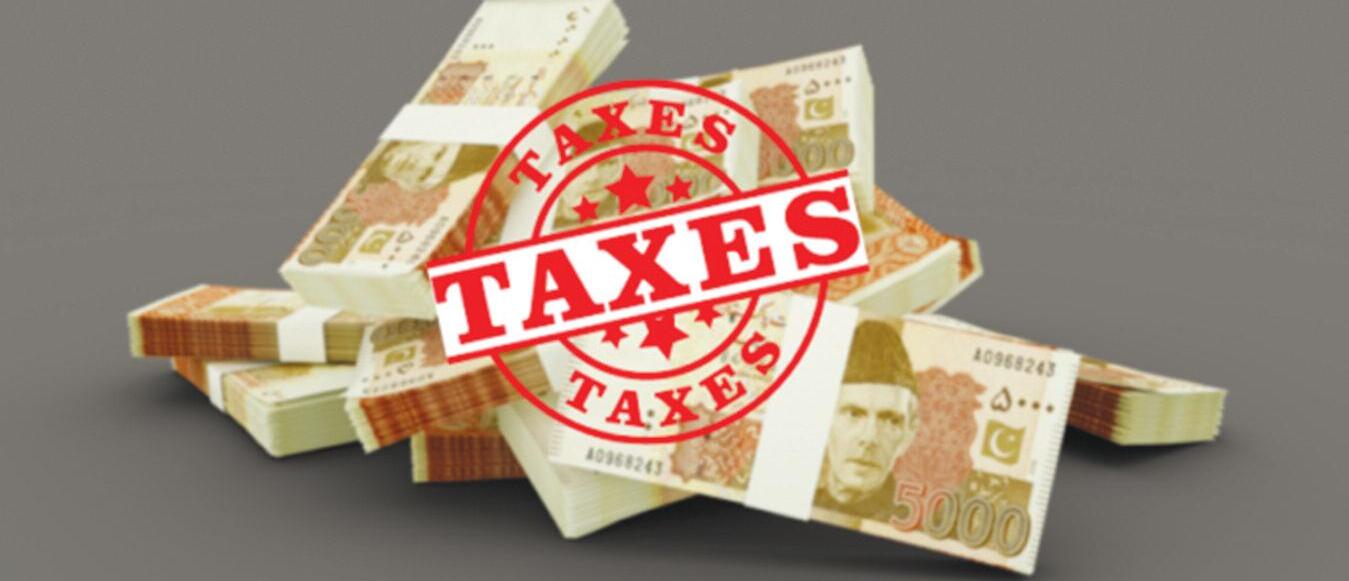

Ex-ANP SPokESPErSoN LikELy To juMP

PAF ac ademy graduates 149 c adets in major ceremony at Risalpur

Defence, 26th A&SD 9th Logistics and 132nd Combat Support courses General Sahir Shamshad Mirza Chairman Joint Chiefs of Staff Committee, served as the chief guest, while Air Chief Marshal Zaheer Ahmed Baber Sidhu, Chief of the Air Staff, was
Sazgar Engineering sells over 3,400 units in October
production in September 2024 as part of its operational growth Sazgar additionally declared a dividend for 1QFY25 at Rs 10 per share marking a notable financial update
The October results indicate a strong production trend positioning Sazgar within the current demand landscape for both vehicle categories
CONTINUED FROM PAGE 01
According to Reuters, Balochistan Inspector General of Police (IG) Moazzam Jah Ansari said “The target was army personnel from the Infantry School AFP quoted IGP Moazzam Jah as saying: Fourteen members of the army and 12 civilians were killed in the blast Baig, according to AFP, said 46 members of the security forces and 14 civilians were wounded The railway authorities said that two trains Chaman Passenger and Jaffar Express were scheduled to depart from Quetta to Chaman and Peshawar respectively The passengers of both trains were present at railway station platform at the time of the blast According to a list of the injured shifted to Quetta Trauma Centre and Emergency Department issued by Managing Director Dr Arbab Kamran Kasi 53 people aged between 20 and 50 years were wounded Six of them were stated to be in a serious condition whereas three had been shifted to an intensive care unit The banned militant group Balochistan Liberation Army (BLA) claimed responsibility for the blast
‘T R E AT T E R R O R I S T S A S T E RR O R I S T S’: Balochistan Chief Minister Sarfraz Bugti appealed to the country to “treat terrorists as terrorists” and appreciate that the state was working to counter their threat Addressing a joint press conference with Interior Minister Mohsin Naqvi in Quetta the chief minister took aim at human rights activists asking why they remained silent on the attack Where are they?” Bugti asked “They should demand that the government do something about this ” “These people turn the Baloch youth into suicide bombers and pursue politics this way he continued Terrorists have no nation this is a battle for all aspects of society the media, the judiciary, the politicians He lamented that the mainstream media only described religiously motivated militant groups as “terrorists” stating that terrorists should be treated as terrorists Answering a question Bugti said We
have to protect every inch of the state and they have to breach only one inch of the state That causes a lot of damage He said that the Balochistan government took responsibility for the damage, but lamented that there was no appreciation for counterterrorism operations “CTD conducted an operation in Sohrab we conducted operations in Musakhel Bugti said Naqvi chimed in and said We have caught four or five terrorists in the past week There are a great many things that don t reach you (the media) “This is war, we are not dealing with criminals ” he added “The Balochistan government has taken the lead and is empowering the FC [Frontier Corps] You will see results from the CM s approach The chief minister extended thanks to the health department and trauma centres for their response to the incident A P P E A L F O R B L O O D: Speaking to Geo News Shafqaat said the blast occurred at approximately 8:25am adding that the body of the suicide bomber had also been identified He appealed to the public to donate blood for the wounded, stressing there was a need for it The commissioner also urged the public not to head to the railway station Quetta Trauma Centre or the Civil Hospital noting that in such incidents there is a risk of twin attacks Right now, we have cordoned off the city and are conducting snap-checking [ ] Gatherings have been banned,” Shafqaat said Asked if the blast specifically targeted someone the commissioner said terrorist organisations attacked soft targets on purpose out of frustration
E M E R G E N C Y I M P O S E D I N H O SP I TA L S: Balochistan Heath Minister Bakht Muhammad Kakar was present at the Quetta Trauma Centre to oversee the treatment of the injured a statement by his office said It added that an emergency had been imposed in the Civil Hospital and the Trauma Centre, with more doctors summoned on duty Earlier, Quetta Senior Superintendent
of Police (SSP) Operations Mohammad Baloch told reporters that around 100 people were present at the site according to footage seen by him He added that at the time of the blast, a Jaffar Express train was reportedly ready to depart from the platform for Peshawar Police and security forces had reached the site of the incident according to a statement by Balochistan government spokesperson Shahid Rind He said the Bomb Disposal Squad was collecting evidence from the site and a report had been sought on the incident The train services between Quetta and Peshawar was restored from Oct 11 after remaining suspended for more than a month and a half Rail traffic between Quetta and rest of the country had been suspended on August 26 after a key railway bridge between Kolpur and Mach was destroyed in a blast carried out by BLA as part of province-wide coordinated attacks C
Earlier
Bugti condemned the in-
continuation of
geting
saying
was
people In a statement,
Bugti said, “The terrorists’ target now are innocent people labourers children and women Those targeting innocent peo-
do not deserve mercy According to the

COMMENT
Living off the diaspora
Remittances rise, expec ted to keep rupee stable
TH E rise in remittances in October was welcome, especially as they exceeded October, which in turn was higher than September However, theory also highlighted the fact that one of Pakistan s most important exports, in future perhaps its most important, is labour The remittances are important to the economy, because they represent a balancing factor, as the country looks to them to balance the current account, and thus enable the country to pay for its imports At the same time, the remittances are awaited with anxiety by households all over the country for very few of those who go abroad do not carry expectations from the family they have left behind that they will send scads of money back home There are a number of problems that need to be looked at First as the government depends on this money to balance its books it cannot be indifferent at the quality of the people it sends abroad This implies it must be careful about the education that its people receive As it is not known which individual will go abroad, the government will have to provide education to everyone, and of a high quality too, because individuals will need to be better educated than people in the native population if they are to get a job The government should realise that if other South Asians, like Bangladeshis and Sri Lankans, have undercut Pakistanis in the Middle East labour market, they will soon do in the semi-skilled job market It may be too late, but the government needs to focus now on highly skilled positions, for which Middle Eastern countries import Europeans and for which the USA imports Indians Another question which has not really been answered is what can be done with the money sent home The answers seem to be conspicuous consumption and real estate Neither is very productive Pakistan should understand that its competition abroad is in the neighbourhood If in the 19th and 20th centuries India exported indentured labour to Fiji, the West Indies, Mauritius and wherever sugar was grown, South Asia still looks abroad to make its excess population productive Such measures as giving overseas Pakistanis

M A Niazi Editor Pakistan Today Babar Nizami Editor Profit
M A L L and Medium Enterprises (SMEs) play a pivotal role in Pakistan s economy, contributing significantly to its Gross Domestic Product (GDP) As of 2021, nearly 5

Freedom turning in on itself
the
land to live their lives freely, they took the freedom of Palestinians This phenomenon has been recurring every time someone has felt free of the bondages that were somewhat necessary to keep the
scheme of life in place Now this manifestation of power to subjugate others at the behest of freedom is not only prevalent at the higher end of society, it has taken root in the core of society People, whenever feeling empowered, have tried to obstruct the freedoms of others inflicting misery on them We have seen it happening in small neighbourhoods where some having more freedom than others to speak have tried to impose their views It has also taken the form of a mass movement, like in the case of attacks on the US Capitol in the backdrop of perceived or alleged election fraud in the 2020 US elections by Republican voters who feeling empowered or free enough attacked the US capitol denting US democracy Similarly people in a country like Pakistan on the behest of freedom, have violated the society, which can be seen in the violent movement of the Tehrik Labaik Pakistan, mass movements by the Pakistan Tehrik Insaf and even in the form of student riots at Quaid-eAzam University In all these and many other
cases, the expression of freedom has caused more damage to society This kind of unchecked expression of freedom has not only impacted society but also those who were at the helm of it This kind of expression of freedom exposes oneself as his own security and freedom of movement and life gets challenged When a person, while trying to exercise what they think is freedom of expression, is threatening the freedom and existence of others, then at some point, whenever this opposition gets strong enough it will threaten their freedom So considering all this a key thing to understand is that the human struggle for freedom is viable till it violates the freedom of others and that s where the concept of liberty begins which along with identifying the need of humans also imposes some checks on it so that it may not start to erode the society However humans will try to get around these checks as they work in their self-interests without seeing far and society will try to impose checks and regulate them This is a cycle in which we all as a society are trapped, and perhaps the ultimate way out is a true and purer democracy
The writer is a freelance columnist

Severe AQI Aler t
Making freedom liber t y

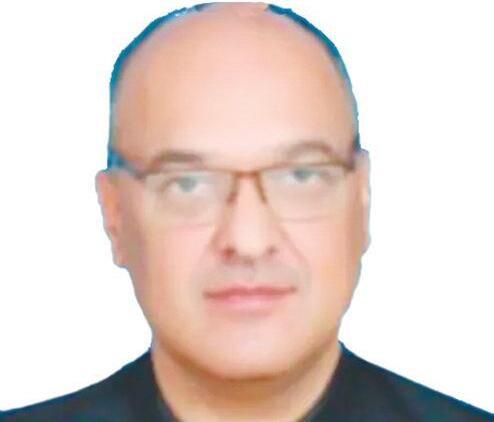

citizens to express dissatisfaction and advocate for change While they can be effective tools for social justice and political reform ongoing protests can also negatively impact individuals communities and the nation overall No country prohibits people from peacefully protesting and voicing their demands; however, violence during protests and the negative impact of repeated demonstrations on the nation and society are not tolerated anywhere in the world Governments may respond to sustained protests with heavy-handed tactics eroding civil liberties In Hong Kong, the response to pro-democracy protests involved a crackdown on freedoms of speech and assembly, significantly diminishing democratic rights for residents The Black Lives Matter protests following George Floyd s death in 2020 sparked a global movement against racial injustice, but their persistence also led to considerable backlash, with some communities experiencing heightened tensions between protesters and law enforcement as well as economic disruptions affecting local businesses
The Gilets Jaunes (Yellow Vests) movement in Frbce began as a protest against fuel taxes but expanded into a broader critique of economic inequality While these protests highlighted important issues, they also resulted in significant violence and property damage straining the relationship between citizens and the government and negatively impacting local businesses
To understand the current landscape of protests in Pakistan, it s important to consider the historical context Since its independence in 1947 Pakistan has faced political instability and civil unrest Notable protest movements include the 1977 antigovernment protests the 2007 lawyers movement, and the 2014 Pakistan Tehreeke-Insaf (PTI) protests The protests led by the Pakistan National Alliance against Prime Minister Zulfikar Ali Bhutto’s government
illustrated how civil unrest can destabilize political structures Widespread protests against Gen Muhammad Zia-ul-Haq s regime further polarized society and laid the groundwork for future unrest
The lawyers movement was a pivotal moment in Pakistan’s political history, aiming to restore Chief Justice Iftikhar Muhammad Chaudhry and ultimately leading to the restoration of democracy However these protests also exposed deep societal divides and institutional weaknesses The 2014 protests led by Imran Khan resulted in significant instability and confrontations with state institutions Urban protests, particularly in cities like Karachi and Lahore can create a disconnect with rural populations who may feel alienated from the issues at hand breeding resentment and deepening societal fractures Repeated protests in cities such as Islamabad and Lahore often escalate into violence For instance during the 2017 Faizabad sitin clashes between protesters and law enforcement resulted in deaths and injuries normalizing aggressive tactics among both protesters and police Over time frequent violent confrontations can desensitize communities to aggression, fostering a culture in which aggressive protest tactics are deemed acceptable This normalization can perpetuate cycles of violence and conflict Living in an environment where protests are commonplace can induce chronic stress for many residents The uncertainty and fear of potential violence can particularly affect vulnerable populations, such as children and the elderly, contributing to anxiety disorders In Pakistan the already limited mental health infrastructure can become overwhelmed by the ongoing stress from repeated protests, leading to an increase in mental health issues and placing further strain on the healthcare system Protests often result in confrontations with law enforcement which can create a sense of distrust among citizens When police responses to protests are heavy-handed it reinforces the perception that law enforcement is not a protector, but rather an adversary Repeated civil unrest can also deter foreign investment, as investors typically seek stable environments This perception of Pakistan as a risky investment destination can stifle economic growth and development Protests can heavily impact the tourism
Text profiling is the
industry which is crucial for economic growth Frequent unrest may dissuade tourists resulting in economic losses for businesses that rely on tourism, particularly in historically rich cities like Lahore and Islamabad The government often allocates substantial resources to manage protests including increased police presence and security measures diverting funds from essential services like education and healthcare thereby affecting overall development
After violent protests, the costs of property damage and reconstruction can strain the national budget For example, the aftermath of the 2017 Faizabad sit-in required considerable financial resources for cleanup and damage control
Prolonged protests can lead to layoffs in affected industries particularly in retail and services Many individuals in Pakistan work in the informal sector, which is especially vulnerable to disruptions caused by protests leaving workers without support during unrest and worsening poverty and economic instability
A continuous state of unrest can lead to political gridlock, preventing the government from implementing necessary reforms For instance, during the PTI protests, key legislative initiatives were stalled as the focus shifted to managing the protests If citizens perceive that protests do not lead to meaningful change they may become disillusioned with the political process resulting in decreased voter turnout and civic engagement over time Ongoing protests can create a power vacuum that extremist groups may exploit The rise of radical factions after political unrest is concerning as these groups can leverage societal grievances to gain support Young people disillusioned by the political system may be particularly susceptible to recruitment by extremist groups, especially if they view protests as ineffective
The current protests and calls for further demonstrations in Pakistan and AJK are part of this ongoing trend These protests appear designed to undermine the economy education tourism healthcare law and order and overall peace in Pakistan and AJK They do not address core issues but instead serve the personal interests of certain so-called leaders Pakistan’s political landscape has long been tainted by accusations of self-serving behaviour by leaders leading to public frustration as citizens feel that politicians prioritize their own gains over the needs of the nation Political dynasties have taken root, fostering a system where loyalty to family and party is prioritized over accountability to voters
hidden force shaping our online world
WE live in an era in which our attention has become the hottest commodity Text profiling technology has emerged as one of the most powerful, yet controversial, tools shaping our digital experiences Every post, comment and reaction we generate is a data point that is quietly harvested processed and interpreted among many others to understand who we are, what we believe and how we might act next
Text profiling is not some futuristic concept; it is operating underneath the surface of every social media platform right now As this technology grows in sophistication we must ask ourselves: how much power are we giving to algorithms that increasingly know more about us than we know ourselves?
WHAT IS TEXT PROFILING?
Text profiling involves analysing our online text to identify patterns in our personalities, preferences, behaviour and moods By leveraging Natural Language Processing (NLP), machine learning algorithms study the large volumes of text we generate to gain insights into who we are This information is then used to categorise us into demographic groups, predict our actions or tailor content specifically to our interests
The potential of this technology lies within the language generation process itself As we put words together to form meaningful sentences we unconsciously reveal aspects of our behavioural blueprint Recent discoveries show that during text creation, numerous demographic and social characteristics are leaked through our preferences for specific linguistic elements
Social media platforms utilise this technology to improve the user experience by recommending relevant or interesting content It powers advertising engines that allow companies to target potential customers precisely enhancing the effectiveness of marketing campaigns It even helps detect harmful behaviour, such as hate speech, harassment or misinformation, providing tools to moderate content and keep online communities safer However with such power comes an inevitable dilemma When we hand over the keys to our digital identities what are the long-term consequences for our privacy, autonomy
and society at large?
BEYOND PERSONALISATION
The idea of having a feed tailored to our exact interests seems advantageous Text profiling makes this possible turning endless streams of content into curated experiences that align with our tastes The content we consume, though, is shaped by the profiles inferred about us, which are often based on incomplete biased or inaccurate information Algorithms tend to reinforce existing preferences and beliefs pushing users further into ideological echo chambers While we may think that we are simply scrolling for leisure, we might actually be sinking deeper into entrenched worldviews and being disconnected from other perspectives This technology was at the heart of the Cambridge Analytica scandal, where data from millions of Facebook users was used to build psychological profiles that helped target political advertising By identifying users fears and biases targeted ads were crafted to sway public opinion The line between personalisation and manipulation became perilously thin, demonstrating just how much is at stake
THE BIASES BEHIND THE TECHNOLOGY: Like any technology text profiling carries with it the biases of its creators Profiling systems are trained on vast amounts of data that often include biases present in society, leading them to reproduce and even amplify these biases in their decision-making This means that marginalised groups may be misrepresented or stereotyped in the profiling process, with potentially harmful outcomes For example, language use varies significantly across different cultures and socio-economic backgrounds An algorithm failing to understand these different contexts may interpret a user s intent incorrectly or assign them to a misleading profile A casual remark might be taken out of context, leading to real-world consequences, such as being flagged unjustly for inappropriate content or receiving irrelevant (or even offensive) ads As text profiling technology is adopted increasingly beyond social media, such as in hiring processes, credit assessments or policing, the potential for biased outcomes grows If these technologies are not developed and deployed with fairness and transparency in mind they risk perpetuating existing inequalities rather than alleviating them
WHERE DO WE GO FROM HERE? It s clear that text profiling is neither purely good nor evil It s a tool, which means its impact depends on how it is used Several actions are needed to harness its benefits while mitigating its harms First transparency must be a priority Social media platforms and tech companies need to provide greater clarity on how they use text profiling technologies, what data is being collected and how these insights shape users’ experiences Second regulation must catch up with technology Governments worldwide have started introducing data privacy laws, but the pace of technological advancement often outstrips policy-making Thoughtful regulation that protects user privacy while fostering innovation is crucial to ensure that these technologies are developed responsibly Finally, there must be an emphasis on ethical AI development This means training algorithms on diverse datasets, testing for biases and involving ethicists and social scientists in the design process The creators of these tools need to ensure that their systems work fairly for all users not just for the majority or those who fit a narrow profile
A CALL FOR DIGITAL LITERACY: As a researcher who has been working in this field for the past 20 years I often find myself struggling with the ethical implications of my work
Every time I publish new research on text profiling, I question whether it will have a positive impact on society or contribute inadvertently to harm
As we navigate the new digital landscape digital literacy understanding how our data is used and being critical of the content we engage with is becoming as important as traditional literacy We should question why we see certain ads why particular posts are prioritised and how our online personas are constructed through the data we leave behind Text profiling is a powerful tool with incredible potential to enhance our digital experiences, but without scrutiny and careful stewardship, it could easily be weaponised against us shaping our worldviews in ways we may not even recognise As users we must push for transparency and fairness in the technologies that shape our lives so profoundly Moreover, as creators, researchers and policymakers we must ensure that the unseen hands guiding our experiences are working in service of a fairer more informed society not just for profit, but for the common good
A key issue is the short-term focus of many politicians As elections approach there is often a rush to implement populist policies that provide immediate benefits, instead of tackling long-term structural problems This narrow perspective is often motivated by the need to secure votes for the next election cycle leaving fundamental issues unresolved Corruption continues to be a widespread problem The absence of effective accountability mechanisms exacerbates this Despite various anti-corruption campaigns, many politicians escape punishment, creating a culture of impunity that discourages the electorate and reinforces the belief that self-interest prevails Political discourse in Pakistan is often marked by divisiveness with parties resorting to mudslinging and personal attacks instead of constructive policy debates This atmosphere diverts attention from critical national issues and fosters a polarized society where leaders exploit divisions for their own benefit Rather than coming together for the common good politicians often concentrate on consolidating their power The media in Pakistan plays a dual role; it can hold politicians accountable and highlight public concerns but it can also sensationalize stories and contribute to misinformation A responsible media landscape is vital for promoting transparency and accountability Similarly, a vibrant civil society can mobilize citizens to demand better governance, pushing politicians to align their interests with those of the public Pakistan faces a multitude of challenges From economic difficulties to social issues these are interconnected and require comprehensive strategies for effective resolution The economy has long struggled with instability, marked by high inflation, rising debt levels, and persistent trade deficits The country heavily depends on remittances and foreign aid which can be volatile and subject to global economic changes Additionally a narrow tax base and insufficient investment in key sectors hinder sustainable growth The energy crisis, worsened by mismanagement and inadequate infrastructure, complicates the economic situation resulting in frequent power outages that disrupt both industries and households Political instability is another significant challenge for Pakistan Frequent government changes, along with political turmoil and corruption, undermine public trust in institutions The absence of a cohesive political
AS speculation spreads regarding how Donald Trump s second administration will impact global politics, the most clarity we have is regarding his policies towards West Asia (also commonly referred to as the Middle East) While all indications point to a very similar regional strategy as his predecessor Joe Biden there are a few differences to watch out for While much of the world braces for a second Trump presidency, due to the American president s seemingly unpredictable nature, his first term in office informs much of what he is likely to do in West Asia To begin with Trump’s support for Israel is ironclad but how he will affect the ongoing wars that the Israelis are waging in Gaza and Lebanon has been a topic of much debate While he criticized Biden on the campaign trail as having been too tough on Israeli Prime Minister Benjamin Netanyahu, there have also been reports that Trump informed the Israeli premier that he wants the war over by January While the Republican Party leader had attacked Vice President Kamala Harris as being weak on the issue of Israeli security he didn t ever explain how this was the case and then when speaking at events in Michigan – home to many Arab and Muslim voters – spoke about ending the war in Gaza Therefore, all this mixed rhetoric should be taken merely as campaign propaganda
The top financial backer of the Trump 2024 campaign is a woman named Miriam Adelson Israel s richest billionaire, who donated $100 million with the understanding that Donald Trump would permit Israel to annex the illegally occupied West Bank In 2016, the Trump campaign was bankrolled by Miriam Adelson and her now deceased husband Sheldon Adelson who backed the Republican president on the condition that he move the US embassy from Tel Aviv to West Jerusalem a promise that he fulfilled in 2018
While it appears as if Israel will struggle to immediately annex the West Bank due to the current circumstances on the ground, it will likely be an annexation of around 60% of the occupied territory constituting what is known as Area C If Trump permits his Israeli allies to go through with this it will completely destroy any hope for a Two-State solution
When it comes to the conflict in Gaza, assuming that the war continues into Trump s term in office, there’s very little different that his administration is likely to do, other than allowing Israel to completely cut off all aid from entering the Palestinian territory In the event that Trump s government allows the severing of all aid which is only trickling in at this point anyway and doesn t meet the required needs of Gaza s population, then this would amount to the implementation of a full-scale genocide of 2 million people It is more likely however, that Trump’s policy will be the same as Biden’s in this regard
BIDEN S REGIONAL POLICY WAS MODELED ON TRUMP’S: While Joe Biden took office with promises of ending the war in Yemen, taking a tougher stance against Saudi Crown Prince Mohammed Bin Salman, and returning to the Iran Nuclear Deal, he failed on all accounts Instead the Biden administration continued the maximum pressure sanctions campaign against the Islamic Republic of Iran even adding to the existing list of measures as the Vienna-based negotiations to revive the Nuclear Deal faltered Biden then followed through on a withdrawal of US forces from Afghanistan, which was already negotiated between the Taliban and the
Trump administration before he took office As for ending the war in Yemen the Biden administration failed to achieve anything on that front and, after initially taking Ansarallah [the Houthis] off of its list of terrorist groups, eventually decided to return the movement, which leads the Sana’abased government to the list The temporary ceasefire between Riyadh and Sana a was mediated by the United Nations and not the US government On top of this instead of taking a tougher stance on Saudi Arabia, the Biden administration ended up making Riyadh the most important pillar in its overall West Asia strategy Staking all his cards on a
Abdul bAsit Alvi

DONALD TRUMP CLINCHES NEVADA’S ELECTORAL VOTES, MARKING 6TH SWING STATE VICTORY IN 2024 RACE

Nor th Korea jams GPS signals, affecting ships, aircraft in South SEOUL
F P
North Korea staged GPS jamming attacks on Friday and Saturday, an operation that was affecting several ships and dozens of civilian aircraft in South Korea, Seoul’s military said The jamming allegations come about a week after the North test-fired what it said was its most advanced and powerful solid-fuel ICBM missile its first such launch since being accused of sending soldiers to help Russia fight Ukraine The South fired its own ballistic missile into the sea on Friday in a show of force aimed at demonstrating its resolve to respond to “any North
provocations North Korea conducted GPS jamming provocations in Haeju and Kaesong yesterday and today Seoul s joint chiefs of staff said in a statement on Saturday, adding several vessels and dozens of civilian aircraft were experiencing “some operational disruptions” The military warned ships and aircraft operating in the Yellow Sea to beware of such attacks We strongly urge North Korea to immediately cease its GPS provocations and warn that it will be held responsible for any subsequent issues arising from this, they said in the statement Relations between the two Koreas are at one of their lowest points in years, with the North launching a flurry of ballistic missiles in violation of UN sanctions It also has been bombarding the South with trashcarrying balloons since May in what it says is retaliation for anti-Pyongyang propaganda missives sent North by activists The South Korean military said Pyongyang also attempted to jam GPS signals in May but added at the time that it did not hinder any military operations in the South In Friday s drill South Korea fired a Hyunmoo surface-to-surface short-range missile into the West Sea, which the military said was to show Seoul s “strong resolve to firmly respond” to any North Korean threats The Hyunmoo missiles are key to the country’s socalled Kill Chain preemptive strike system which allows Seoul to launch an attack if there are signs of an imminent North Korean attack Experts say such jamming attacks can lead to other incidents that could escalate tensions on the Korean peninsula “It remains unclear whether there is an intention to divert the world’s attention from troop deployments instil psychological insecurity among residents in the South or respond to Friday s drills Yang Moo-jin president of the University of North Korean Studies in Seoul, told AFP “However, GPS jamming attacks pose a real risk of serious incidents, including potential aircraft accidents in the worst-case scenario ” Ahn Chan-il a defector-turned-researcher who runs the World Institute for North Korea Studies told AFP the North s jamming could be to shield their own communications and intelligence exchanges during critical military operations both at home and
In democracies a dangerous trend has emerged where politicians on both sides of the political spectrum manipulate the masses to secure power Analysts often criticize politicians for failing to deliver on their promises once in power but they overlook a key aspect: the electoral process itself Elections once a symbol of democratic participation, have been hijacked by a small, elite group that wields immense influence over the outcome sidelining the very people meant to benefit from this system The key driver behind this manipulation is clientelism a system where politicians rely on a select group of influential individuals business magnates, tech giants, and media owners for financial support These elites through their financial power dictate political outcomes by funding campaigns expecting significant returns once their candidates take office A vivid example is the backing of U S presidential candidates in the 2024 race: 79 billionaires support Kamala Harris while 50 back Donald Trump Elon Musk a leading figure in this elite circle has already funneled $75 million into Trump s campaign This quid pro quo arrangement ensures that the wealthy elites receive extraordinary benefits once their favored politicians assume power In this process the ordinary voter the bedrock of democracy is rendered almost irrelevant
As a result, voters are no longer making independent choices Their decisions are subtly manipulated by politicians who use tactics like social media to frame issues in a way


that appeals to emotions rather than reason This erosion of free will is symptomatic of a larger issue: the dying essence of democracy In a system where elites control both the candidates and the discourse, the people’s voices are drowned out leaving democracy a hollow shell What we witness now is not a contest between different political ideologies but a struggle for power within the elite class, with the public serving as mere spectators
A glaring example of this manipulation is the selection of political candidates Even who gets to run for office is often decided by this elite group not the people The 2024 U S Presidential Race where Kamala Harris replaced Joe Biden as a Democratic contender, demonstrates how little influence the general public has in determining their leaders Such decisions are crafted by elites further disconnecting politicians from their constituents And this is the true manifestation of Elitism
The aftermath of this manipulated electoral process is equally troubling Politicians, once in power focus primarily on satisfying the demands of their financial backers rather than addressing the concerns of the public This creates a power vacuum, where unelected bureaucrats and state establishments step in to manage governance Over
time, these establishments grow more powerful Politicians reduced to figureheads deliver scripted speeches at public events while bureaucrats handle the actual running of the country
This poses both dangers and, paradoxically, benefits On the one hand it undermines democracy by stripping elected leaders of real power On the other it ensures that at least some institutions continue to function, preventing the total collapse of government machinery But this is a band-aid solution to a deeper, systemic problem Politicians in this scenario become little more than puppets beholden to their donors while bureaucrats keep the machinery of the state running Populism, once a force opposing the elite, has now also been co-opted by the very elites it was supposed to challenge Leaders like Donald Trump long portrayed as populists representing the common man join hands with the elite He has strong ties to Elon Musk and has vowed to make him head of a new government efficiency commission,’ essentially giving the world’s richest man the power to regulate the regulators who oversee his companies This manipulation of populism is another manifestation of the elite s control over politics, further alienating the public from the political process
Moreover, the rise of social media as a political tool has amplified this manipulation especially among younger voters Youth a critical demographic in contemporary elections are highly susceptible to social media s influence
The author is a student of Strategic Studies at National Defence University Islamabad He tweets @afnanwasif



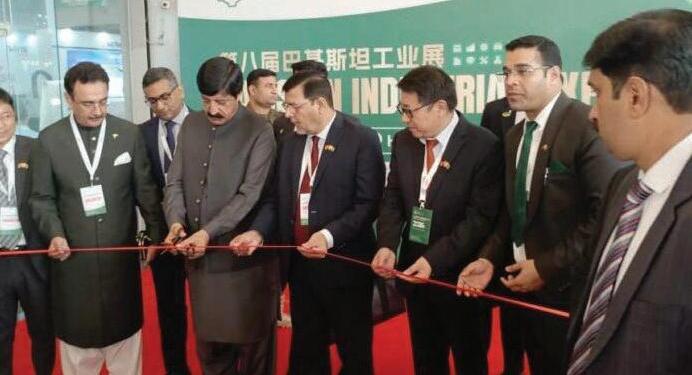
MAP hosts exclusive session with I P S o S C hief Knowledge o fficer, S imon Atkinson
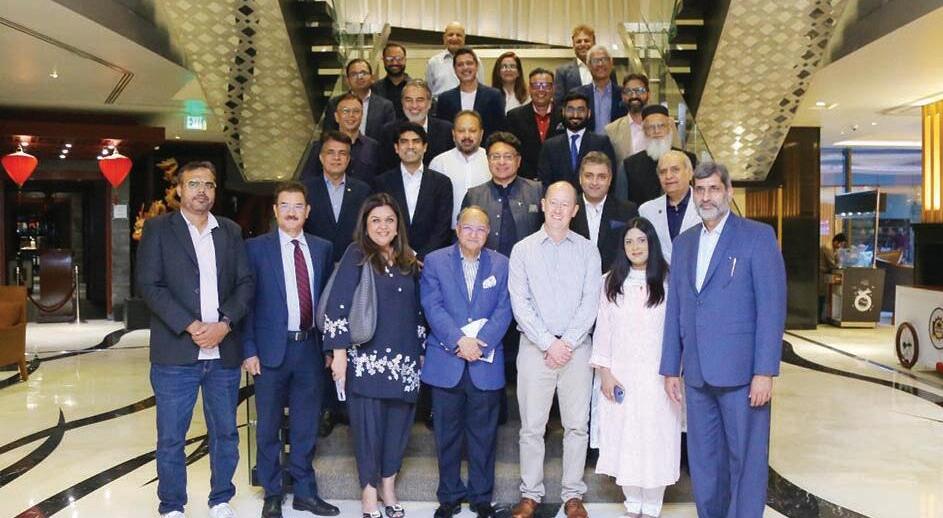
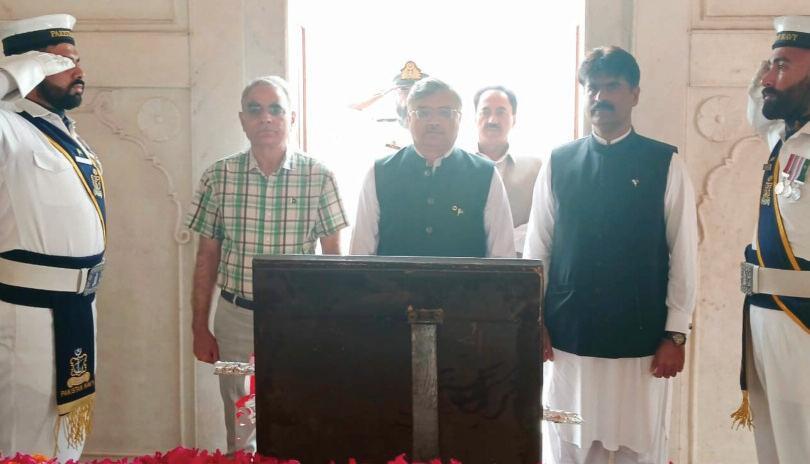
S ingapore FinTech Festival 2024 Honors Walee’s Hakeem with Emerging Fintech Award

Walee Financial Services is thrilled to announce that its pioneering fintech product, Hakeem, has received the prestigious Emerging FinTech Award at the 2024 Singapore FinTech Festival (SFF) Excellence Awards This accolade presented by the Monetary Authority of Singapore (MAS) in partnership with PwC Singapore and the Singapore FinTech Association (SFA), highlights Hakeem’s transformative role in promoting financial inclusion through its ethical and innovative nano-financing model Hakeem: World’s First ShariahCompliant Nano-Financing App Representing Pakistan as the sole finalist Hakeem’s win is a significant milestone for Pakistan’s fintech sector underscoring the potential of emerging fintech products from the region on a global scale Known as the world s first Shariahcompliant nano-financing app, Hakeem is purpose-built to empower underserved communities by providing ethical financial support It offers individuals accessible financing options that align with their values, supporting a sustainable path toward financial empowerment and inclusion Walee’s Hakeem: A Commitment to Financial Empowerment Receiving the Emerging FinTech Award at the Singapore FinTech Festival is an achievement of great pride for both Walee Financial Services and Pakistan,” shared Noshad Minhas, CEO of Walee Financial Services Waqas Ramzan Head of Operations at Hakeem added This

recognition reinforces our dedication to creating impactful Shariah-compliant financial solutions that drive financial empowerment and inclusion ” Khushba Hayat, Partner of Investments at Walee Financial Services noted “Hakeem represents more than a product; it embodies our commitment to fostering financial independence and dignity for those who need it most For more on the SFF Excellence Awards finalists, visit the MAS announcement: MAS Finalists Announcement
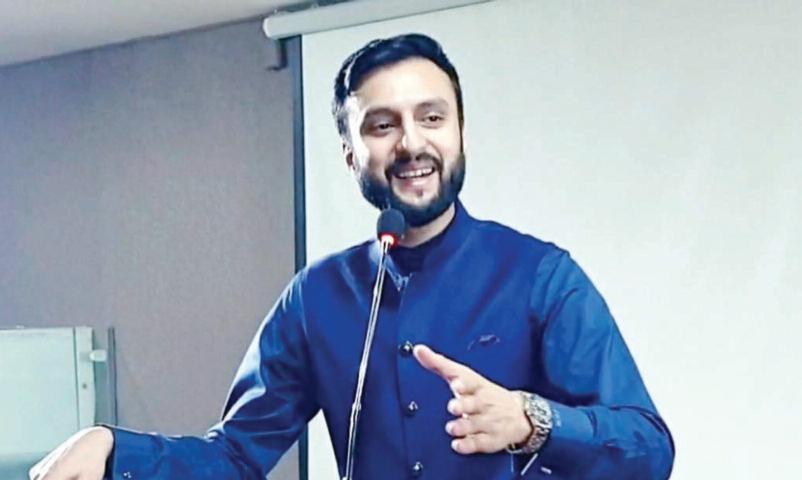


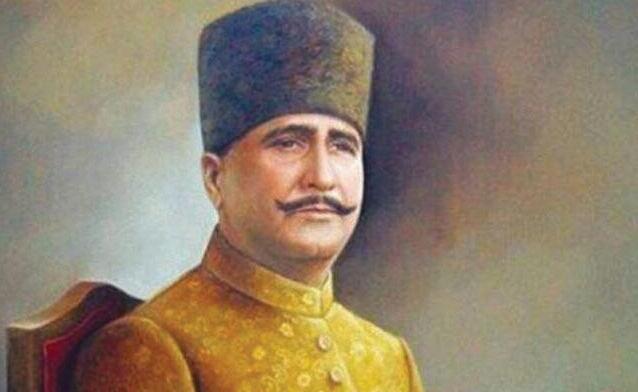
Qaiser Ahmed Shaikh, the Federal Minister for Maritime Affairs, visited the Korean Embassy in Islamabad where he was warmly received by Korean Ambassador Park Ki Jun During the meeting the Federal Minister invited the Korean government and investors to explore opportunities in Pakistan’s growing port and shipping industry emphasizing its immense potential for development He told that countries such as the UAE Saudi Arabia Denmark and Malaysia have already made significant investments in Pakistan s ports, and he expressed hope that Korean investors would also seize the opportunity In addition to maritime cooperation the Minister highlighted several other sectors where bilateral collaboration could be strengthened He called for increased investment and technical support from Korea in Pakistan’s energy sector particularly in renewable energy including solar wind and hydropower projects He emphasized Pakistan s tran-
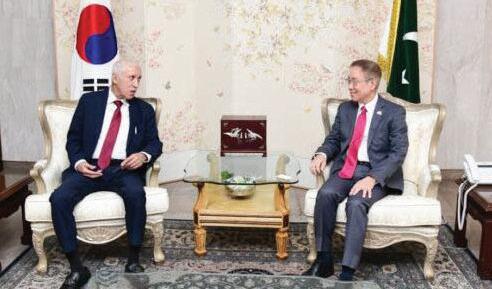
sition towards green energy and the opportunities for Korean companies to be part of this transformation Minister Shaikh also stressed the importance of expanding cooperation in technology and innovation encouraging Korean firms to explore partnerships in Pakistan s growing IT and tech industries
On the education front, the Minister appreciated the existing educational exchange programs between the two countries He underscored the need to strengthen these ties by fostering joint research initiatives and enhancing collaboration in vocational and technical
education Furthermore, the Minister discussed expanding trade relations, particularly in sectors such as manufacturing automobiles and electronics where Korean expertise could help meet the growing demand in Pakistan s market Federal Minister Qaiser Ahmed Shaikh also highlighted the potential for Korean involvement in Pakistan’s infrastructure development especially in urban planning and transportation projects As Pakistan continues to modernize its cities and infrastructure, he welcomed Korean expertise in largescale projects

ISLAMABAD
Jamiat
Ulema-e-Islam-Fazl (JUI-F) on Saturday said that there should be a fair trial in cases filed against the PTI leader Imran Khan “We are and will remain in contact with the PTI as an opposition party a spokesperson of JUI-F said categorically rejecting the media reports claiming that the Maulana Fazlur Rehman had decided to meet incarcerated Pakistan Tehreek-e-Insaf (PTI) founder in Rawalpindi s Adiala Jail Reports were circulating on section of electronic and social media that the JUI-F leadership following the backdoor contacts would meet the jailed PTI founder The reports claimed that JUIF Senator Kamran Murtaza, after receiving the court s nod, would meet Khan in the Rawalpindi jail During the meeting the two op-
position parties would discuss a strategy to give a tough time to the Prime Minister Shehbaz Sharif-led federal government, the reports added However, a spokesperson for the JUI-termed the media reports as rumours saying Senator Murtaza was not given any special task in this regard Meetings and consultations with the PTI leadership on various issues would continue, the spokesperson added J
